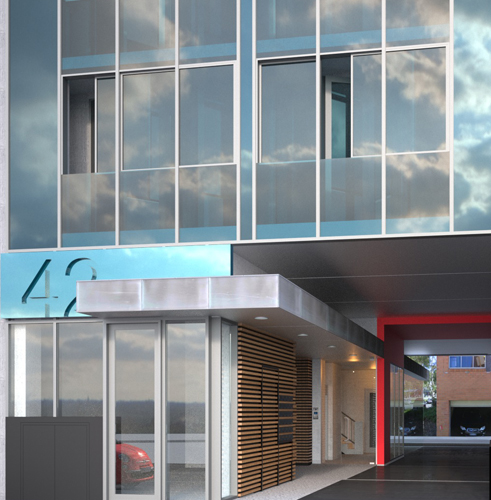We practice in the following areas:
- Conveyancing
- Property Development Services
- Owner corporations
- Building Disputes
- Review, preparation and negotiation of commercial, retail and industrial leases including subleases and licences
- Commercial lease disputes
- Property management
- Adverse possession claims
- Zoning, planning and environment advice
- Land and property valuations
- Removal of restrictive covenants and easements
- General law land conversions
 |
 |
Published in Property Law & Conveyancing on 13th Sep 2011
How to register your security interest You will be able to register your security interest online once the registry becomes available at www.ppsr.gov.au. The idea is that once you register your interest on the register then you are able to claim ownership of your property in the event that the party with possession is unable to pay up or goes into liquidation. Failure to do so means that you could lose your property to other registered interests. A similar registry has been in force in New Zealand with some remarkable results that highlight the importance of registering your assets. Two recent examples from New Zealand In Graham and Gibson v Portacom New Zealand Ltd [2004] 2 NZLR 52...
Published in Conveyancing on 18th Aug 2017
Generally, VOI will be conducted via a face-to-face meeting where the solicitor/conveyancer will inspect current, original identity documents such as a passport and drivers licence or birth/citizenship certificate and Medicare card or healthcare card. Copies of these documents will then be retained and stored securely by the solicitor/conveyancer for a period of seven years. Once completed, VOI is valid for two years and can be used in any number of conveyancing transactions during that time. If you are unrepresented, and are dealing in property or land, you must still meet the Victorian Government’s VOI requirements and have your identity verified by an Approved Identity Verifier. RKL...
Published in Owners Corporation Law on 27th Aug 2014
But what if your OC or OC committee decides to paint all the window frames in your apartment complex “bright neon pink”? Does the OC have the power to do this? The short answer is “yes”, provided they overcome certain hurdles, and meet certain requirements. A recent VCAT case, namely Mowla v Owners Corporation PS5407083B [2014] VCAT 956 highlighted this issue. Facts Mr Mowla brought an application in relation to certain decisions made by the OC’s committee. One of those decisions was in relation to a border that separated his garden bed (which fell within his title) from an area of lawn (which was common property). The other properties in the development had the same configurat...
Published in Owners Corporation Law on 5th Jun 2014
Mr Simpson came to see us after receiving a Notice from the Committee of the Owners Corporation that they had convened a meeting and resolved to strike a special levy of $1.4 million (“the Project Levy”), which was to be spread across blocks A, B and C. His block C, which consisted of 20 lots, was to pay a Project Levy of approximately $500,000 to fund works and repairs. His contribution to the Project Levy alone was approximately $30,000. Mr Simpson was alarmed and contemplated applying for a loan in anticipation of paying the Project Levy. Instead, he came to see us to explore his legal options. We were able to advise that: the amount involved to raise the Project Levy was more...
Published in Owners Corporation Law on 2nd May 2013
Background: This was a case about balconies. The case concerned an application brought by the owner (“the Applicant”) of a unit that was part of a high-rise apartment building. The majority of units in the apartment building had balconies. However, the Applicant’s penthouse unit did not have a balcony. It had come to the OC’s attention that: the balustrading of the balconies were in poor condition and parts of it were at risk of being dislodged; and the balustrading did not comply with building regulation requirements and was designed like a ladder, making it easy for children to climb the horizontal bars. The OC passed a special resolution to implement and fund a...
Published in Owners Corporation Law on 3rd Mar 2013
A common challenge facing owners corporations and strata companies today is the difficulty in striking the right balance between ensuring the security of its members, and not breaching their rights to privacy. The implications of installing CCTV cameras in common areas such as foyer entrances, car parks and lift access areas are vast, and owners corporations and strata companies alike need to be diligent with respect to the implementation and use of such devices, to ensure they are not being used improperly. 1. Surveillance Devices Act 1999 (“the Act”) Section 7 of the Act provides that a person (which includes a body corporate) must not knowingly install, use or maintain an optical...
Subcategories
Building Disputes
RKL can assist clients with contractual issues and workmanship issues, including:
- Contract interpretation
- Faulty or unsatisfactory workmanship
- Incomplete building works
- Non-compliance with Australian Building Codes and Standards
- Domestic building disputes under the Domestic Building Contracts Act 1995 (Vic)
- Fencing Disputes
- Matters under the House Contracts Guarantee Act 1987 (Vic)
- Injunctions sought in relation to building work
- Representation in Victorian Civil and Administrative Tribunal (VCAT), Buildings Appeal Board and all court jurisdictions
- Professional liability and negligence
- Insurance claims advice
Our clients’ Property Developments
We are proud to be working with our clients on the following exciting developments...
Pure42 Wilson St, South Yarra
|
  |
|
Milla Apartments290 Hawthorn Rd, Caulfield
|
  |
|
Made111 - 113 Inkerman St, St Kilda
|
  |
|
Camden Apartments681 Inkerman Rd, Caulfield North
|
|
Husk16 Hughenden Rd, St Kilda East
|
  |
|
|
|
Amber41 Mavho Street, Bentleigh
|
|
Onyx669 – 673 Centre Road Bentleigh
|
|
Conveyancing
We assist clients in the following areas:
- Subdivisions and Off the plan sales and purchases
- Commercial property sales and purchases
- Residential property sales and purchases
- Due diligence
- Related parties’ transactions
- Retirement village units and houses
- Caveats
- Stamp duty issues
- Nomination issues
- Mortgages and securities
Owners Corporation Law
RKL has acted for and advised owners corporations, managers, lot owners, and property developers, and can assist you with the following areas:
- establishment and formation of owners corporations
- management obligations
- fee/debt recovery
- dispute resolution process
- drafting and registration of owners corporation rules
- procedures and requirements for meetings
- advising on obligations regarding common property (including repair and maintenance obligations, leasing/licensing, etc)
- matters relating to subdivision
- conversion from strata/stratum to subdivision (with owners corporation)
Property Development Services
Our services include:
- Site acquisition
- Planning disputes
- Plan of subdivision
- Registration
- Sale of lots





